KEEP NEWS
Gambia’s First Locally Trained Engineers Graduate Through KEEP’s Transformative Partnership
Published: 27 Jun 2025

Twenty-eight pioneering students have become The Gambia’s first cohort of locally trained engineers, a milestone achieved through an academic partnership spearheaded by the KNUST College of Engineering and supported by the KNUST Engineering Education Project (KEEP).
Comprising four civil, thirteen electrical, and eight mechanical engineers—including seven women—these graduates embody the vision ignited in 2019 through the World Bank-funded African Centres of Excellence for Development Impact (ACE Impact) initiative.
Recognising the need to cultivate its engineering talent, the World Bank sought KNUST’s expertise to elevate the Gambia Technical Training Institute (GTTI) into a degree-awarding institution—the University of Science, Engineering and Technology (USET).
Under KEEP, KNUST’s College of Engineering played a pivotal role in curriculum development, faculty training, and institutional capacity building. A foundational pre-engineering program was initiated under Professor Lawrence Darkwah and his colleagues' guidance, setting the stage for USET’s transformation.
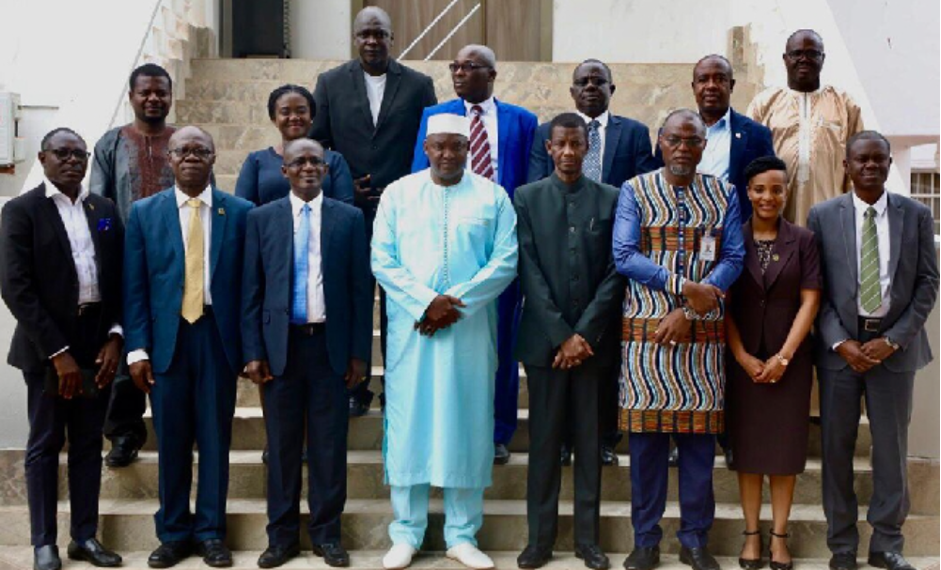
The GTTI-KNUST Consultancy Service Agreement (2021–2024), backed by World Bank funding, was implemented with direct oversight from KEEP, ensuring seamless execution of the project’s key components:
- Curriculum Development & Teaching: KNUST faculty, under KEEP’s coordination, delivered courses in civil, electrical, and mechanical engineering, adapting KNUST’s globally recognised curricula for the Gambian context.
- PhD Training & Faculty Development: Eleven GTTI staff were enrolled in PhD programs at KNUST, with three already graduated and eight continuing their studies, strengthening USET’s academic backbone.
- Administrative & Research Mentorship: KEEP facilitated knowledge transfer in university governance, quality assurance, and research supervision, ensuring USET’s long-term sustainability.
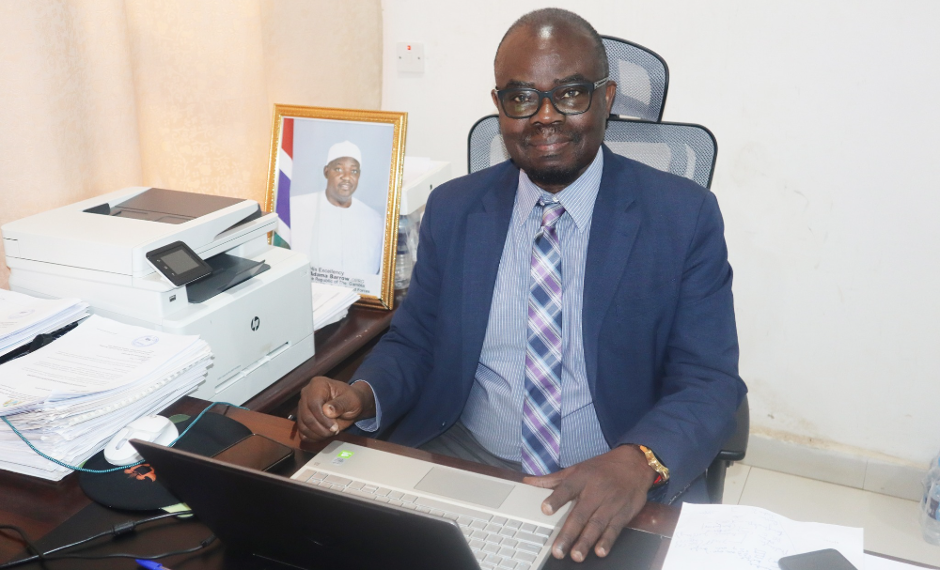
Professor Samuel Patrick Owusu-Ofori, a key architect of USET’s transformation and former Senior Consultant for the project, was appointed Interim Vice-Chancellor of USET in January 2024. His leadership, supported by KEEP’s institutional strengthening efforts, was instrumental in establishing USET’s Emerging Centre of Excellence in Science, Technology, and Engineering for Entrepreneurship (STEE).
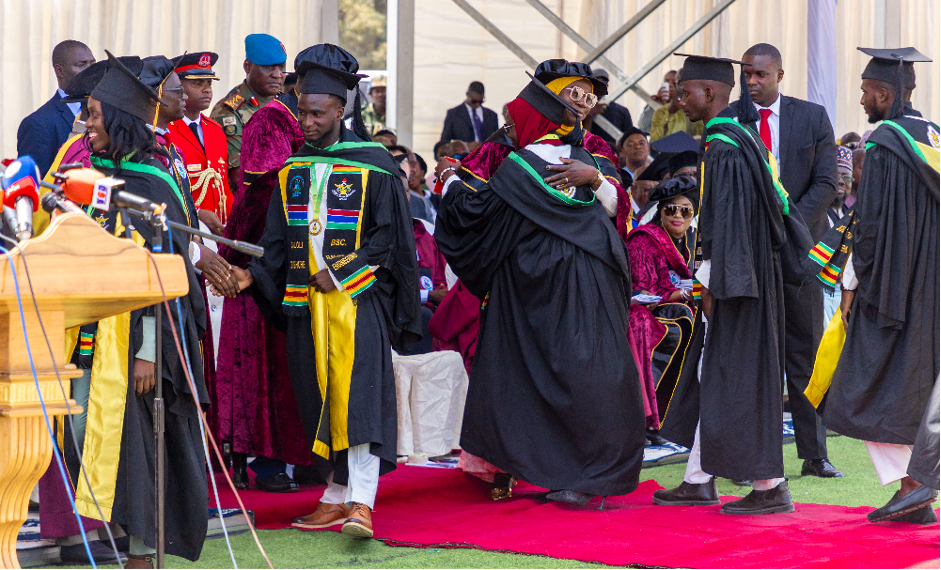
The inaugural graduation on June 21, 2025, in Brikama was a landmark moment, presided over by Gambian President Adama Barrow and attended by KNUST’s delegation, including:
- Professor Kwabena Biritwum Nyarko, Provost of the College of Engineering
- Dr. Griffith Selorm Klogo, Academic Coordinator
- Dr. Denis Edem Kwame Dzebre, Visiting Lecturer and USET
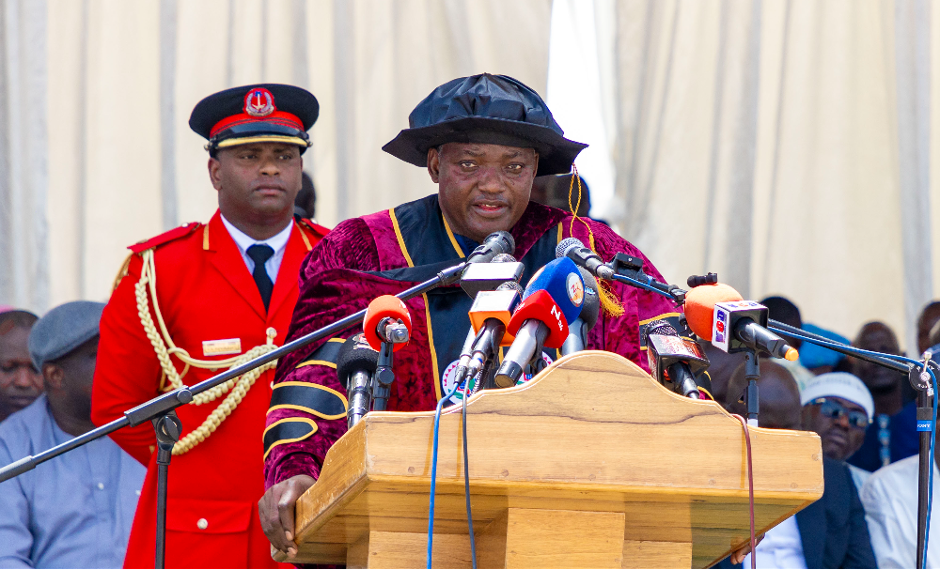
President Barrow hailed the graduates as “flagbearers of a new era in Gambian engineering.” At the same time, USET Vice-Chancellor Prof. Nazmat Surajudeen-Bakinde emphasised the vision of a “Gambia built by Gambians.”
Graduates praised the program’s rigorous training and industry relevance:
- Lawkadinch Silvia Gomez (Mechanical Engineering): "KNUST’s teaching quality was outstanding—I feel lucky to be part of this historic class."
- Samuel Musa-Kormayea (Best Graduating Student): "We had industry experience, not just theory. I plan to work and pursue a master’s."
For faculty, the PhD training was transformative:
- Dr. Seedy Fofana (PhD, Mechanical Engineering, 2023): "Without KNUST, this wouldn’t have been possible."
- Dr. Paul Victor Jatta (Now USET Lecturer): "KNUST’s mentorship prepared me to teach and lead research."
Despite challenges like COVID-19 disruptions, the project—spearheaded by KEEP’s administrative and academic leadership—achieved 99% completion by January 2024.
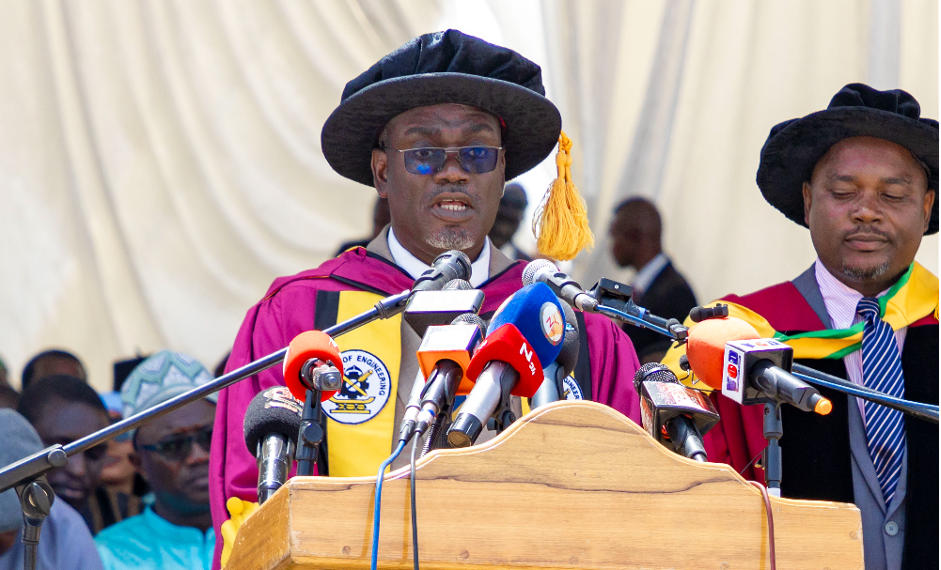
Professor Kwabena Biritwum Nyarko affirmed KNUST’s continued partnership: “We involve these graduates in our research—they are fellows of our centres. The collaboration will endure.”
With only the final batch of students remaining, KNUST and USET have signed agreements to ensure their completion—a testament to the sustainability of this South-South academic model.
The project’s success was driven by:
- Early Coordinators: Prof. Jonathan Arthur Quaye-Ballard & Prof. David Ato Quansah, who laid the groundwork.
- Final Phase Leadership: Dr. Griffith Selorm Klogo steered the project to completion.
- Administrative Backbone: Mr. Johnson Owusu (Finance Officer) and Mrs. Ida Saeed (College Registrar), ensuring seamless execution.
As USET’s first engineers enter the workforce, they prove KEEP’s vision of empowering nations through homegrown expertise, sustainable partnerships, and world-class engineering education.
